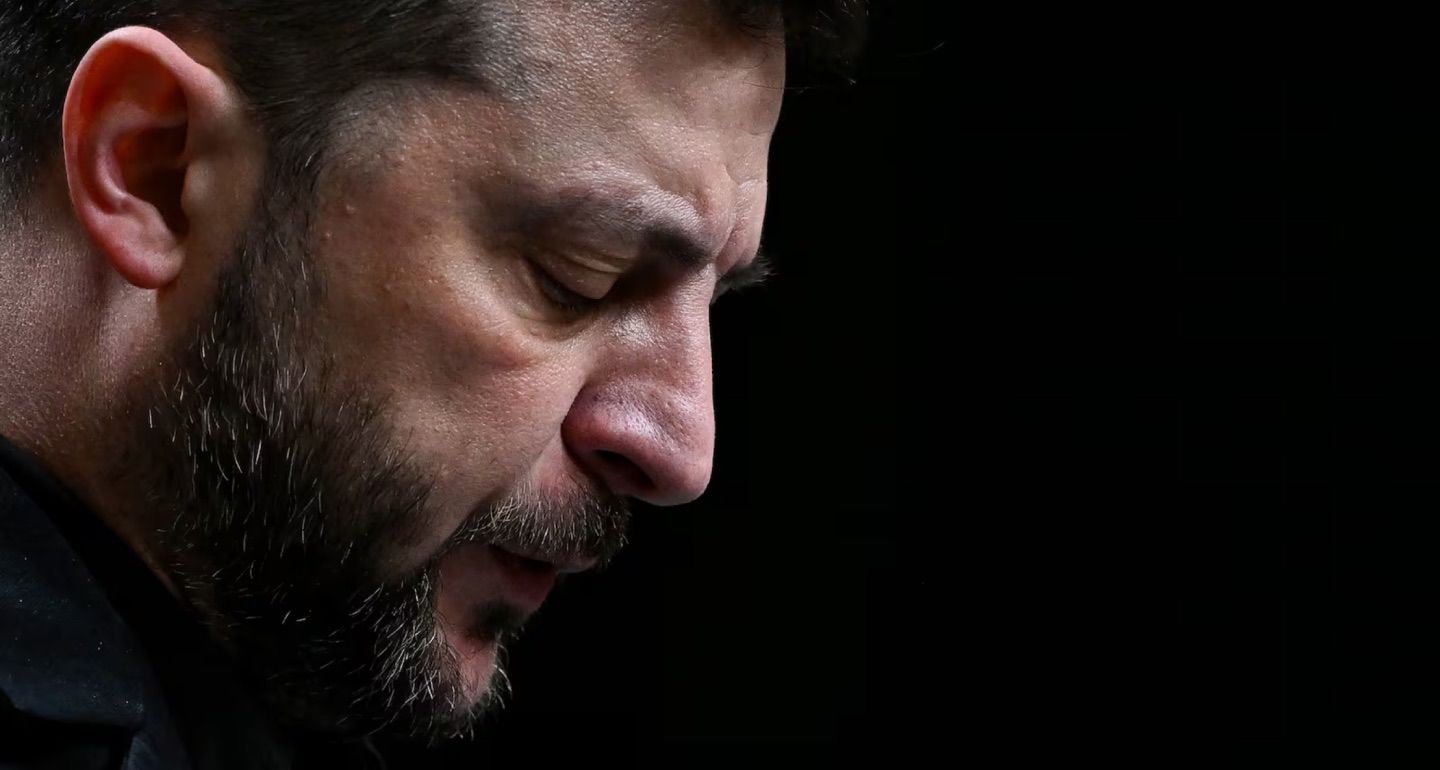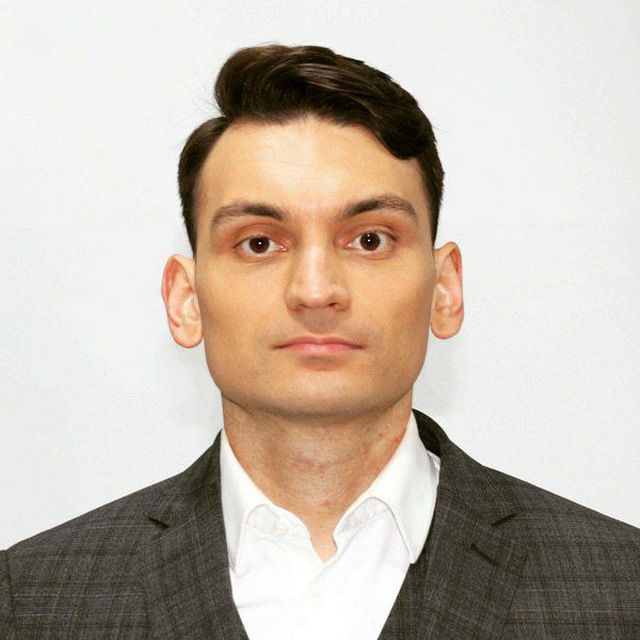Disillusioned with the West over Gaza, Arab countries are not only trading more with Russia; they are also more willing to criticize Kyiv.
Ruslan Suleymanov
{
"authors": [
"Oleg Sukhov"
],
"type": "commentary",
"blog": "Carnegie Politika",
"centerAffiliationAll": "",
"centers": [
"Carnegie Endowment for International Peace",
"Carnegie Russia Eurasia Center"
],
"collections": [
"Politika: The Best of 2025"
],
"englishNewsletterAll": "",
"nonEnglishNewsletterAll": "",
"primaryCenter": "Carnegie Russia Eurasia Center",
"programAffiliation": "",
"programs": [],
"projects": [],
"regions": [
"Ukraine"
],
"topics": [
"Domestic Politics",
"Political Reform",
"Civil Society",
"Security"
]
}
Фото: Getty Images
The corruption scandal is likely to undermine the Zelensky administration’s approval rating and legitimacy just as Ukraine faces accelerating Russian advances on the front line. To avoid a catastrophe, the authorities need to restore public trust and national unity.
The roots of the biggest corruption scandal of Volodymyr Zelensky’s presidency that is currently rocking Ukraine lie in the unprecedented concentration of power in his hands. Zelensky’s party, Servant of the People, has held more than half of the seats in the Ukrainian parliament since 2019, allowing it to rule without coalition partners. When Russia launched its full-scale invasion of Ukraine in 2022, the Zelensky administration also received wartime powers and introduced martial law.
At the beginning of the invasion, Ukrainian civil society and media gave the authorities carte blanche and often refrained from criticizing them for corruption and reform failures. These circumstances allowed the Zelensky administration to concentrate an unprecedented degree of power in its hands.
Now it has become apparent that in some cases, the authorities have taken advantage of that public trust and wartime powers to act with impunity. Following a series of damaging corruption exposés implicating members of Zelensky’s inner circle, the wartime social contract appears to have been broken. Shocked by the scale of the revealed abuses, Ukrainian society is no longer willing to tolerate lawlessness and corruption.
The reckoning came when the National Anti-Corruption Bureau (NABU) and the Specialized Anti-Corruption Prosecutor’s Office (SAPO) targeted Zelensky’s inner circle. They went after Timur Mindich, a close associate and former business partner of the president, and Oleksiy Chernyshov, a former deputy prime minister who is also close to Zelensky.
In response, the authorities tried to end the independence of NABU and SAPO back in July. Zelensky signed a bill subordinating them to the prosecutor general, a presidential loyalist. The apparent assumption was that society’s attention was fully focused on the war, and that opposition to the crackdown would be weak.
The authorities miscalculated. The attempt to declaw the anti-corruption agencies triggered the first large-scale protests since the full-scale invasion. The demonstrations in turn prompted Ukraine’s Western partners to weigh in. As a result, the Zelensky administration had to reverse the changes and restore the anti-corruption agencies’ independence.
The protests showed that Ukraine’s pluralist political culture has survived the wartime concentration of power in Zelensky’s hands and his authoritarian tendencies. Ukraine’s political system has grown accustomed to regular transitions of power through elections and has undergone two successful revolutions against corrupt and authoritarian governments: the 2004 Orange Revolution and the 2014 EuroMaidan Revolution. Accordingly, society is unwilling to accept yet another attempt to build an authoritarian kleptocracy.
Ironically, the attempted crackdown on NABU and SAPO may have produced the opposite effect from that intended. Emboldened by the support of Ukrainian society and Western partners, the anti-corruption agencies likely felt more secure in bringing charges against Zelensky’s close associates.
Earlier this month, NABU charged eight suspects in a large-scale corruption scheme at the state nuclear power company Energoatom. Mindich stands accused of being the ringleader, while Chernyshov is a suspect.
Several other top officials are also allegedly implicated, but have not yet been charged. They include Justice Minister German Galushchenko and Energy Minister Svitlana Grynchuk, whom Ukrainian parliamentary deputies voted to dismiss on November 19, and Rustem Umerov, former defense minister and now secretary of the National Security and Defense Council.
The magnitude of the corruption scandal and media uproar forced Zelensky to distance himself from the scheme. He urged Galushchenko and Grynchuk to step down, and imposed sanctions on his closest associate, Mindich, in an unprecedented move. The Zelensky administration also pledged its support for NABU and SAPO in their anti-corruption investigations.
But despite Zelensky’s efforts to show that he had no role in the corruption scheme, apparent attempts to create obstacles for NABU and SAPO continue. One of the NABU investigators who investigated the Energoatom case, Ruslan Mahamedrasulov, has been arrested by the Security Service of Ukraine (SBU) on dubious grounds and remains in custody.
The SBU, which is loyal to the Zelensky administration, accuses Mahamedrasulov and his father of involvement in the illegal sale of industrial hemp to the Russian republic of Dagestan. But the audio recording in which Dagestan is allegedly mentioned is of poor quality, and the SBU’s critics argue that it is Uzbekistan, not Dagestan, that is mentioned in the tape.
Meanwhile, a key witness who has refuted the SBU’s claims regarding Mahamedrasulov has been charged with perjury and arrested, in what critics see as an attempt to exert illegal pressure on NABU and punish it for taking on presidential allies.
To justify the crackdown, the SBU has claimed that it is exposing alleged Russian influence within NABU. Moreover, some of the government’s supporters argue that by investigating and exposing corruption at the top, the anti-corruption agencies, independent media, and activists are destabilizing the country and making it vulnerable to Russia’s continued aggression. This is a classic case of shooting the messenger. It is the senior officials involved in corruption who are helping Russia, not those who expose it.
Indeed, the suspects in the Energoatom corruption scheme are themselves linked to Russia through Andrei Derkach, a former Ukrainian lawmaker who has fled the country, been charged with high treason, and currently serves as a Russian senator in the country’s upper house of parliament. According to tapes released by NABU, the suspects also allegedly transferred $2 million to Moscow.
Mindich, meanwhile, owned a stake in the Russian diamond producer New Diamond Technology until 2024, according to an investigation published in October by Yaroslav Zheleznyak, a lawmaker from Ukraine’s opposition Holos party.
The corruption scandal is likely to undermine the Zelensky administration’s approval rating and legitimacy just as Ukraine faces accelerating Russian advances on the front line. To avoid a catastrophe, the authorities need to restore public trust and national unity.
The most radical solution to the current political crisis would be to hold presidential and parliamentary elections. However, that would be impossible without lifting Ukraine’s martial law act, which bans the holding of elections in wartime.
Elections held during conditions of war would also entail tremendous security risks, and Russia would likely take advantage of them. Until there is a ceasefire—and there is no evidence of that happening any time soon—this scenario is unrealistic.
Another option is creating a national unity government that would include both Zelensky allies and opposition figures trusted by society. Several opposition parties and even some lawmakers from Zelensky’s party have already called for the creation of such a government.
This option could also potentially boost the government’s legitimacy, but the question is whether Zelensky is willing to share power. After holding a monopoly on government for so long, he might be unwilling to make the necessary concessions.
The least Zelensky can do to resolve the crisis is to replace the cabinet of ministers and fire the most controversial top officials, including his chief of staff Andriy Yermak, who has been accused of initiating the summer attack against NABU, and Yermak’s deputy Oleh Tatarov, and let NABU and SAPO do their job unimpeded. It goes without saying that controversial figures need to be replaced by people who have an impeccable record.
Without such necessary decisions, Ukraine’s stability and its very survival may be jeopardized.
Carnegie does not take institutional positions on public policy issues; the views represented herein are those of the author(s) and do not necessarily reflect the views of Carnegie, its staff, or its trustees.
Disillusioned with the West over Gaza, Arab countries are not only trading more with Russia; they are also more willing to criticize Kyiv.

Ruslan Suleymanov
With the blocking of Starlink terminals and restriction of access to Telegram, Russian troops in Ukraine have suffered a double technological blow. But neither service is irreplaceable.

Maria Kolomychenko
The main source of Russian aggression is a profound mistrust of the West and the firm belief that it intends to inflict a “strategic defeat” on Russia. As long as this fear persists, the war will not end.

Tatiana Stanovaya
Despite its reputation as an island of democracy in Central Asia, Kyrgyzstan appears to be on the brink of becoming a personalist autocracy.

Temur Umarov
The Russian army is not currently struggling to recruit new contract soldiers, though the number of people willing to go to war for money is dwindling.

Dmitry Kuznets